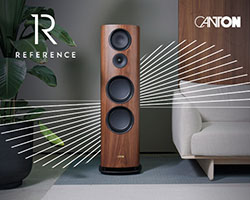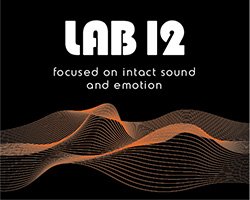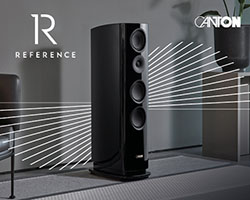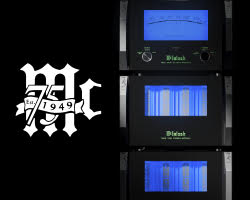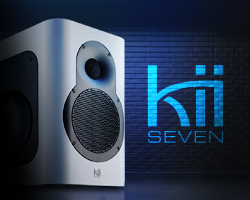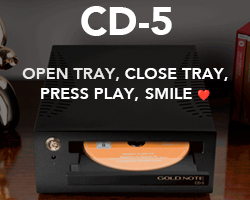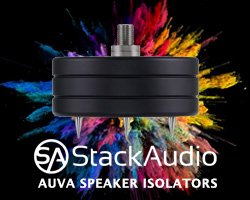Saratoga start-up company COGNiTone announces BTA amplifier concept and promises a revolution in the way we experience and interact with our music.
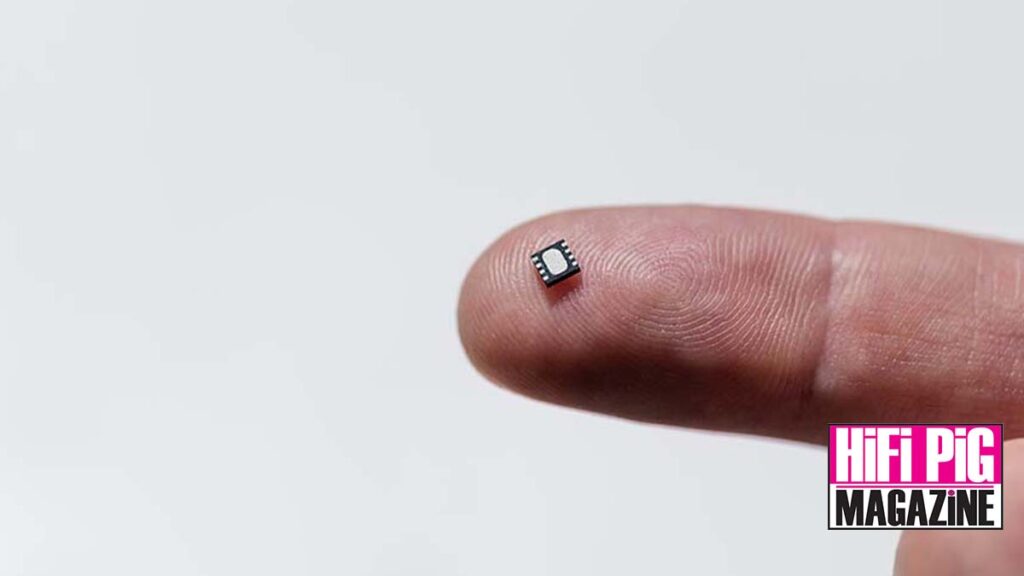
In the ever-evolving world of high-fidelity audio, where enthusiasts chase the holy grail of perfect sound, a recent technological advancement promises to push the boundaries of what’s possible—or, perhaps, what’s advisable. A visionary billionaire – known more for his exploits in electric cars, space travel, questionable arm gestures, and social media antics than for his contributions to the world of HiFi – has unveiled a new product that could revolutionise how audiophiles experience their music. Or at least, that’s what the press release says.
The product called the Brain-Tuned Amplifier (BTA), is an ambitious fusion of cutting-edge neuroscience and audio engineering. It promises to deliver perfect sound every time, by interfacing directly with the user’s brain. Yes, you read that correctly: the amplifier isn’t just a piece of gear you adjust with a remote or a smartphone app. Instead, it’s tuned by your thoughts, emotions, and possibly, your whims.
What could possibly go wrong?
Let’s take a look at the science behind this potentially groundbreaking innovation.
THE BIRTH OF THE BRAIN-TUNED AMPLIFIER
The idea for the BTA reportedly came to our unnamed tech mogul during one of his famously intense brainstorming sessions. Surrounded by a team of engineers, neuroscientists, and possibly a few sci-fi writers, he wondered why audio equipment hadn’t yet caught up with other technological advances. We’ve got smart speakers, wireless earbuds, and even devices that can adjust their sound based on room acoustics. But what about the ultimate tweak? What if, instead of adjusting our environment to our audio equipment, we could adjust our audio equipment to our brains?
This led to the development of a small, implantable device, which the company claims is both safe and painless when in place. The device is inserted into a small section of the auditory cortex—the part of the brain responsible for processing sound—and interfaces with your existing HiFi setup via an interface and, of course, the BTA unit. The implant is supposedly capable of reading brainwaves in real time, using them to adjust the amplifier’s output to match your ideal sound profile.
But why stop there? The BTA also taps into your emotional state, tweaking the sound profile based on your mood. Feeling a bit down? The BTA will pump up the jam to give you that warm, comforting thrum you didn’t even know you needed. In a more energetic state? Expect the treble to sparkle and the mids to punch just that little bit harder. The device promises to make every listening session not just enjoyable, but perfectly attuned to your unique mental state.
HISTORY REPEATING ITSELF?
Now, some of you may be thinking that this all sounds a bit far-fetched. And you’d be right to be sceptical, I reckon. But believe it or not, this isn’t the first time that the idea of brain-tuned audio has surfaced in history.
In the early 1970s, a little-known Hungarian scientist named Dr. Laszlo Neuröta developed a prototype of what he called the “Psycho-Sonic Receiver.” Dr. Neuröta’s device was rudimentary by today’s standards— essentially a pair of headphones that could, in theory, read a listener’s brainwaves and adjust the audio signal accordingly. However, the project was plagued by technical issues, not to mention the fact that early test subjects reported strange side effects, including the sensation of being “tuned into” other people’s thoughts. Dr. Neuröta’s research was quietly shelved, and the scientist himself faded into the obscurity of sheep farming in the Falklands, but the dream of brain-tuned audio lived on in certain audiophile circles.
Fast forward to today, and the BTA’s creators claim to have solved all the problems that plagued earlier attempts at brain-tuned audio. Using advanced machine learning algorithms and state-of-the-art neuro-imaging technology, the BTA is said to be able to deliver an unparalleled audio experience—one that’s free from the glitches and ghostly whispers of earlier attempts.
HOW DOES IT WORK?
The Brain-Tuned Amplifier, or BTA, relies on a small, silicon-based chip that’s implanted in the auditory cortex. Once in place, the chip establishes a wireless Bluetooth connection with the amplifier, feeding it a constant stream of data about your brain’s activity. The amplifier then uses this data to adjust its output in real time, fine-tuning everything from the EQ settings to the gain and power distribution. Hardly a straight wire with gain, but come on, this is 2025!

What’s more, the BTA’s developers have included a suite of additional features designed to enhance your listening experience. For example, the amplifier can detect when you’re paying close attention to a particular aspect of the music – such as the intricate plucking of a guitar string or the subtle nuances of a vocal performance – and automatically enhance those elements and their spatial cues. Conversely, if it senses that you’re starting to get distracted or bored, it might subtly adjust the volume or add a touch of reverb to recapture your interest – HiFi PiG would have thought a small(ish) electrical shock might be more in order for some.
Linked to the company’s streaming service Cortibuz, BTA can even create personalised playlists based on your current mood, selecting tracks that match your emotional state. For instance, if it detects that you’re feeling stressed, it might cue up a series of calming ambient tracks, whereas if you’re feeling energetic, it could switch to something more upbeat and driving. Feeling a tad rebellious and it might throw up a bit of Crass or Conflict for you.
But the BTA isn’t just about improving your listening experience—it’s also about making it easier. The device includes a “set-and-forget” mode that automatically calibrates your entire audio setup, from the amplifier (BTA) to the speakers, based on the specific characteristics of your brain. This means that you’ll never have to fiddle with settings or adjust the position of your speakers again—the BTA does it all for you.
POTENTIAL PITFALLS?
Of course, not everyone is convinced that the BTA is the next big thing in audio. Some critics who have seen the product have raised concerns about the potential side effects of implanting a chip in your brain, particularly when it comes to long-term health risks. Others worry about the possibility of the device being hacked or used for nefarious purposes—after all, if someone can control your amplifier, who’s to say they couldn’t control your thoughts as well?
There are also concerns about the ethical implications of a device that can read and interpret your brainwaves. Some have argued that the BTA represents a slippery slope towards a dystopian future where our thoughts and emotions are no longer private but can be monitored and manipulated by outside forces. Some argue we are already living in a dystopian future, so what the hell?
And then there’s the question of whether the BTA actually delivers on its promises. While early adopters have reported positive experiences, with many claiming that the device has transformed their listening experience, there have also been reports of unexpected side effects. Some users have described a sensation of “audio overload,” where the BTA enhances certain frequencies to such an extent that it becomes overwhelming. Others have reported feeling a strange sense of disconnection from their music, as if the device is doing too much of the work for them.
Perhaps most concerning are the reports of “phantom tracks,” where users claim to hear music that isn’t actually playing. These phantom tracks are said to be faint, distant, and often disjointed, as if the BTA is picking up stray signals from another dimension – like getting BBC 6 Music when you were expecting Classic FM… or vice versa. While the company behind the BTA has dismissed these reports as “anecdotal,” they have nonetheless sparked debate among audiophiles and neuroscientists alike.
THE FUTURE OF AUDIO OR JUST ANOTHER GIMMICK?
So, is the Brain-Tuned Amplifier the future of audio, or is it just another gimmick? It’s too early to say for sure, but there’s no denying that the device has generated a lot of buzz and discussion in the audio community who have been allowed access. Some see it as the ultimate tool for achieving perfect sound, while others view it as a dangerous and unnecessary step towards a future where technology intrudes on our most intimate experiences.
Whatever your opinion, there’s no doubt that the BTA represents a bold and ambitious attempt to push the boundaries of what’s possible in audio. Whether it will succeed in revolutionising the way we listen to music, or whether it will end up as just another footnote in the history of HiFi, remains to be seen.
One thing is for certain: the Brain-Tuned Amplifier has already made (brainy) waves in the industry, and it’s sure to be a topic of discussion among audiophiles for years to come. Whether you’re excited by the prospect of brain-tuned audio or sceptical of the technology’s potential, there’s no denying that the BTA is an intriguing and provocative development.
As with all new technologies, only time will tell whether the Brain-Tuned Amplifier lives up to the hype. For now, it’s safe to say that the BTA represents a fascinating and controversial addition to the world of high-fidelity audio. Whether it’s the beginning of a new era or just another flash in the pan, one thing is certain: the future of audio is going to be very interesting indeed.

SO WHAT?
In conclusion, the Brain-Tuned Amplifier represents both the cutting edge of audio technology and the inherent risks of pushing the boundaries too far. It promises an unparalleled, deeply personal listening experience by directly interfacing with your brain, a concept that would have seemed like science fiction not too long ago. However, it also brings with it a host of ethical, psychological, and technical concerns that cannot be ignored.
As we stand on the brink of what could be a new era in audio, it’s worth considering the implications of a device that can read our thoughts and adjust our reality accordingly. While the promise of perfect sound is tempting, we must also weigh the potential costs. Will the Brain-Tuned Amplifier become the audiophile’s ultimate tool, or will it be remembered as a cautionary tale of technology gone too far? Only time will tell.

For now, we’ll leave you with this thought, or we would have but BTA just played Philip Glass 5’ and I can’t tell if that’s a reaction to my intellect or the algorithm taking the piss.

Stuart Smith






















































